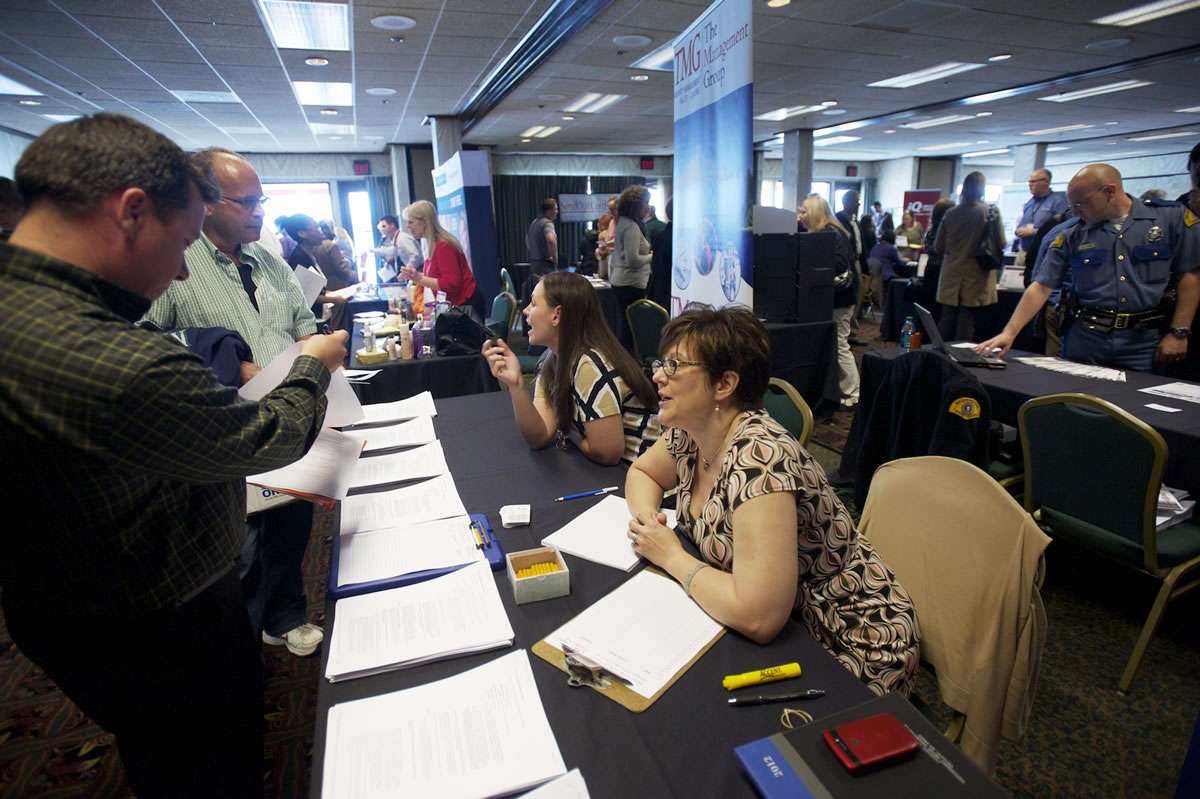Clark County remains a tough place to find work, and figures showing that thousands of long-term job seekers have run out of jobless benefits — with many more to come — only punch home the problem.
Since the economic crash four years ago, roughly 6,000 county residents have used up all of their allotted unemployment insurance. By the end of this month, up to 2,600 more county residents — and up to 60,000 statewide — are expected to lose their safety net. And hundreds more Clark County residents who’ve been filing for benefits in Oregon’s system will lose their insurance by the end of this year, too.
It’s a situation that illustrates a bleak fact: Although the economy has shown improvement, many job seekers are still stuck on the sidelines facing few employment opportunities and disappearing unemployment insurance checks.
The reason it’s taking so long for people to find work is as simple as it is alarming: You don’t bounce back easily or quickly from the worst economic calamity since the Great Depression. “This is not an ordinary recession,” said Scott Bailey, regional labor economist for the Washington Employment Security Department. “It was a financial meltdown with big issues around the financial sector and debt, and our policies haven’t been adequate to bring unemployment down and speed up the economy.”
You don’t need numbers to tell you that, either. Job seekers, including Vancouver resident Chris Nelson, left few seats empty at the Vancouver WorkSource office Wednesday as they hunted for a way back into the labor market.
Nelson, 52, was laid off several years ago from a grocery store. The Vancouver Housing Authority is helping her find a job, she said, as she stood outside the WorkSource office. “I need to get a job,” she added, “something consistent.”
Running out of benefits
During much of the recession, most unemployed workers could qualify for up to 99 weeks of benefits. The benefits came in categories: 26 weeks of regular benefits; 53 weeks of federal emergency unemployment compensation; and 20 weeks of extended benefits — paid in that order.
However, drops in the state’s jobless rate triggered the end of extended benefits, which were shut off in April.
Meanwhile, congressional action has reduced emergency unemployment compensation to a maximum of 37 weeks. And, after Dec. 29, only regular benefits — 26 weeks — will be available for most workers in Washington.
Since the economic crash four years ago, about 6,000 Clark County residents have run out of all jobless benefits. That number could rise as high as 9,000 or more by the end of this year.
As it stands, 5,539 county residents are collecting unemployment insurance. For perspective, at the depths of the crash, roughly 13,511 county residents were on unemployment insurance.
About 40 percent of the 5,539 currently on unemployment — 2,210 residents — are receiving the federal emergency benefits that are going away by the end of this year.
When you add in other factors, including hundreds of county residents who previously worked in Oregon, the number of Clark County residents who’ve lost all unemployment compensation since the crash four years ago could reach roughly 9,000 by the end of this year.
Against the odds
To be sure, there’s been improvement in the local economy. The county’s jobless rate was 9.9 percent in September, which marks the most accurate data available. In September 2011, unemployment in the county was 11.8 percent. It was 11.6 percent in October 2011.
Yet, the county’s jobless rate remains higher than the state and the nation. And the local recovery has been a mixed bag. Since unemployment peaked in December 2009, the number of officially unemployed Clark County residents has declined by about 10,000, according to Bailey. About half of the decline is due to an improved labor market. However, the other half is because people have been dropping out of the labor force.
There’s debate as to why the economy has remained sluggish, and why it’s taking so long for people to find work. Some say there’s a skills mismatch, where employers can’t find the right workers, so workers need retraining. However, Bailey said studies he’s reviewed show the skills mismatch is a small part of the problem. The bigger problem is a lack of aggregate demand in the economy, as consumers and businesses keep a crimp on their purchases and expansions, which forces job seekers to keep looking for employment.
A study earlier this year by the Federal Reserve Bank of San Francisco showed that aggregate demand is what’s holding back the economy and keeping workers on the sidelines. And a recent report by the Economic Policy Institute, a Washington, D.C.-based think tank, showed that the “job-seekers ratio” — the ratio of unemployed workers to job openings — was unchanged in September from the revised August ratio of 3.4-to-1.
The job-seekers ratio has improved since its peak of 6.7-to-1 in the summer of 2009, according to EPI, but the “odds remain stacked against jobs seekers” as the ratio has been 3-to-1 or greater for four years since September 2008. A job-seekers ratio above 3-to-1 means there are no jobs for more than two out of three workers.
It’s a lingering problem with potentially destructive long-term impacts. “Prolonged spells of unemployment cause substantial hardship,” according to the study by the Federal Reserve Bank of San Francisco. “People who are unemployed for a long time struggle not only with a loss of financial well-being, but also with a likely deterioration of their re-employment prospects.”
Aaron Corvin: http://twitter.com/col_econ; http://on.fb.me/AaronCorvin; 360-735-4518; aaron.corvin@columbian.com.




